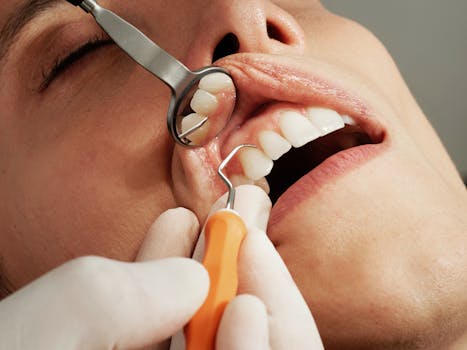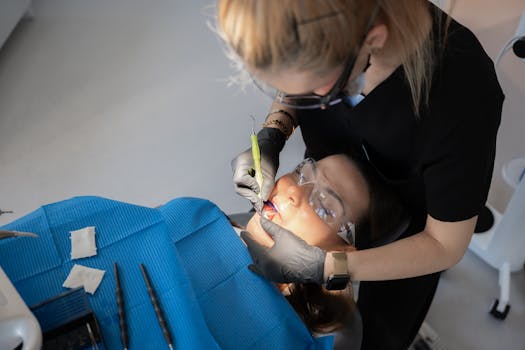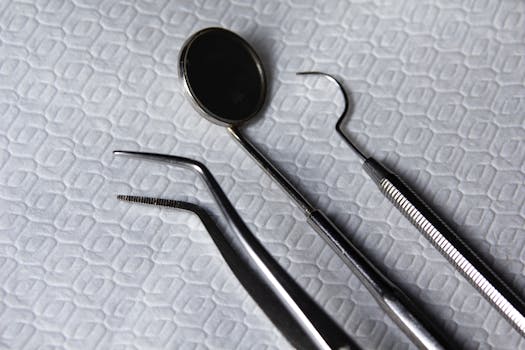White gums - What your body is trying to tell you
You've probably stood in front of the mirror many times to admire your radiant smile. But have you taken a look at your gums? The colour and texture of your gums can be a vital indicator of your oral health. In this blog post, we'll dive into the topic of white gums and explain what they mean, what can cause them and how you can ensure a healthy smile with the support of ALPINE WHITE.

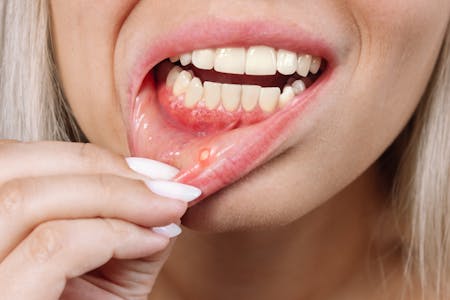
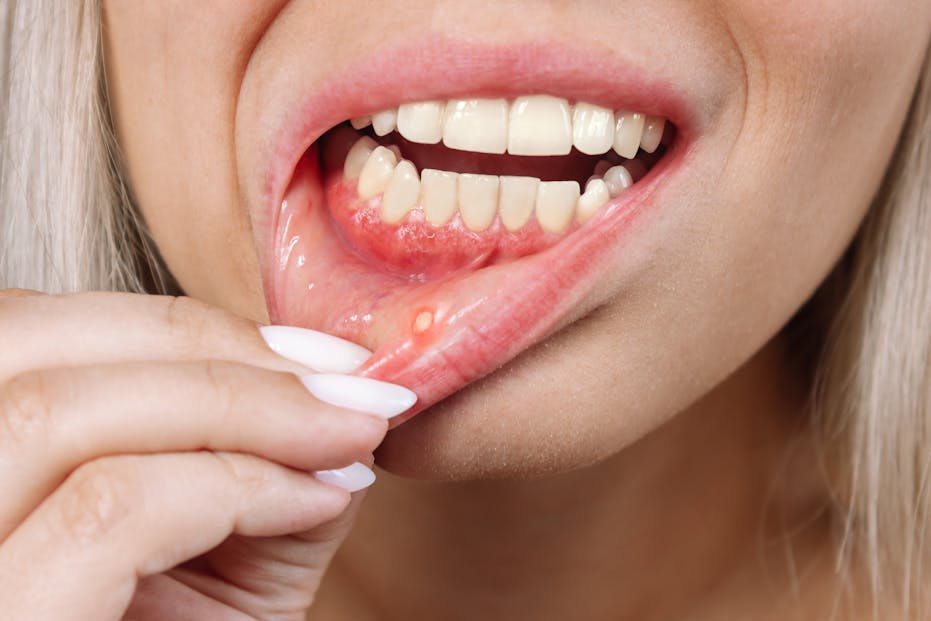
What does white gum mean?
If you notice that your gums appear whitish, it is important not to panic, but also not to be indifferent. White gums are often a symptom of an underlying condition or irritation in the mouth. It can be caused by a variety of factors, including gum inflammation such as gingivitis, fungal infections such as candida infections (oral thrush) and even skin conditions such as oral lichen planus.
Tooth decay can also play a role, especially if it is so advanced that it affects the gums. The use of certain toothpastes that contain harsh chemicals can also cause irritation and discolouration of the gums. Therefore, it is crucial to identify the cause and take appropriate action to maintain your dental health. Come to the ALPINE WHITE Studio for an oral health check-up.


Not sure about the health of your mouth? Thanks to our innovative intra-oral camera, we can give you a detailed overview and offer you the best possible individual routine.
- We check your oral health and hygiene
- Checking your teeth for cavities
- Composition of an individual routine
The most common causes of white gums
White gums can be caused by a variety of factors. The most common causes are:
Gum disease: The silent enemy of your gums
Gingivitis and periodontitis are two of the most common gum diseases that can lead to white gums. Gingivitis is the early stage of gum inflammation caused by the build-up of plaque and tartar. If these are not removed, the condition can develop into periodontitis, a more serious form of gingivitis that can attack the jawbone. Both conditions can irritate the gums and lead to discolouration. Therefore, regular teeth cleaning is essential to maintain healthy gums.
Fungal infections: The invisible invader
Oral thrush is a fungal infection caused by the yeast Candida. This infection can manifest as whitish plaques on the gums and other parts of the mouth. Oral thrush often occurs in people with a weakened immune system and can be made worse by poor oral hygiene. Treatment is usually with antifungal medication.
Irritation: The irritating factor
Braces, dentures and even ill-fitting fillings can irritate the gums and cause irritation and discolouration. If you wear braces or dentures, it is important to clean them regularly and watch for signs of infection. Poorly fitted fillings should be corrected as soon as possible to prevent further problems.
Diet and lifestyle: the underestimated factors
Tobacco use, acidic food and drink can erode tooth enamel and affect the gums. Food debris and bacteria can also irritate the gums. It is therefore important to maintain a balanced diet and healthy lifestyle to protect your dental health.
Other factors: The unknown variables
Aphtae, small painful ulcers in the mouth, can also cause white gums. These can be triggered by stress, certain foods or hormonal changes. Hormonal changes, such as those that occur during pregnancy or menstruation, can also affect the gums and cause discolouration.
Symptoms and accompanying conditions: More than just a colour change
White gums are often just the tip of the iceberg when it comes to symptoms and accompanying conditions. In addition to the noticeable discolouration, other signs can include bleeding gums, bad breath and irritation in the mouth. Bleeding gums are particularly worrying as they can be an early sign of gum disease such as gingivitis. Bad breath, medically known as halitosis, can also be an indicator of poor oral hygiene or an underlying disease.
In more severe cases, white patches or even leukoplakia may occur. Leukoplakia is a thickening of the oral mucosa that occurs in response to chronic irritation. Although it is usually harmless, in rare cases it can be a sign of cancer. Therefore, it is important to see an expert immediately if you experience such symptoms.
When is a denture necessary?
In extreme cases where the gums are irreparably damaged, dentures may be necessary. Modern dentures and fillings are comfortable and natural looking, so you can show off your smile without worry.
The key to healthy gums
The correct diagnosis is the first step to effective treatment and a healthy smile. During your first appointment at the ALPINE WHITE Studio, our qualified team will perform a comprehensive dental cleaning. This will remove plaque and tartar, which are often the main causes of gum problems.
If your problems persist despite professional dental hygiene at the ALPINE WHITE Studio, we have the option of referring you to a dentist we trust. There, further diagnostic steps such as X-rays or blood tests can be taken to determine the exact cause of your discomfort.
Depending on the diagnostic results, the dentist will draw up a treatment plan tailored to your individual needs. For example, if you have gingivitis, special mouthwashes or medications may be prescribed to help reduce the inflammation and restore your oral health to optimal levels. For fungal infections such as oral thrush, antifungal medications are usually used to effectively treat the infection. In more severe cases, such as leukoplakia or other serious conditions, surgical intervention may be required to remove the affected tissue.


For a healthy mouth and beautiful teeth, regular professional teeth cleaning is essential. Our specialists detect early signs of caries and prevent them.
- Personalised dental hygiene
- Gum check & caries control
- Painless cleaning with AIRFLOW
Good oral hygiene as prevention
The best defence against gum problems and other oral health problems is good oral hygiene. Regular brushing with an appropriate toothpaste, flossing and mouth rinsing are basic steps that can significantly reduce the risk of gum disease. But even the most diligent daily care can benefit from professional support.
For optimal oral health, we recommend you visit the ALPINE WHITE Studio for professional dental hygiene on a regular basis. Our specialist dental hygienists use state-of-the-art techniques and products to keep your gums and teeth in top condition. These professional cleanings complement your daily oral care and provide a deeper clean that you can't achieve at home.
In addition to these professional cleanings, we recommend incorporating our ALPINE WHITE products into your daily care routine. Our Whitening Toothpaste Sensitivity Relief is specially formulated to whiten your teeth while soothing sensitive gums. For an even brighter smile, our Whitening Strips Sensitive are the perfect complement. They are easy to use and offer visible results without irritating your gums.
With the combination of regular visits to the ALPINE WHITE Studio and the use of our high quality products, you can be sure that your smile will not only stay bright, but also healthy. You'll strike the ideal balance between daily care and professional support to keep your oral health at the highest level.
Healthy teeth start with the gums
Your teeth may be the stars of your smile, but your gums play an equally important role. Healthy, pink gums are a sign of good oral health, while white gums can be a warning sign. With proper oral care and regular visits to our ALPINE WHITE Studio, you can ensure that your smile stays as bright as ever.

